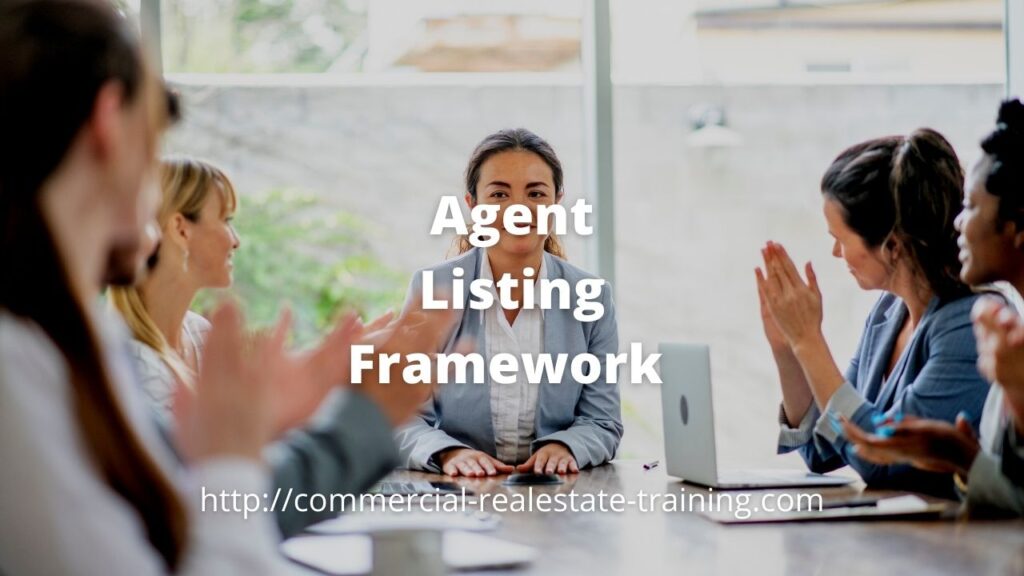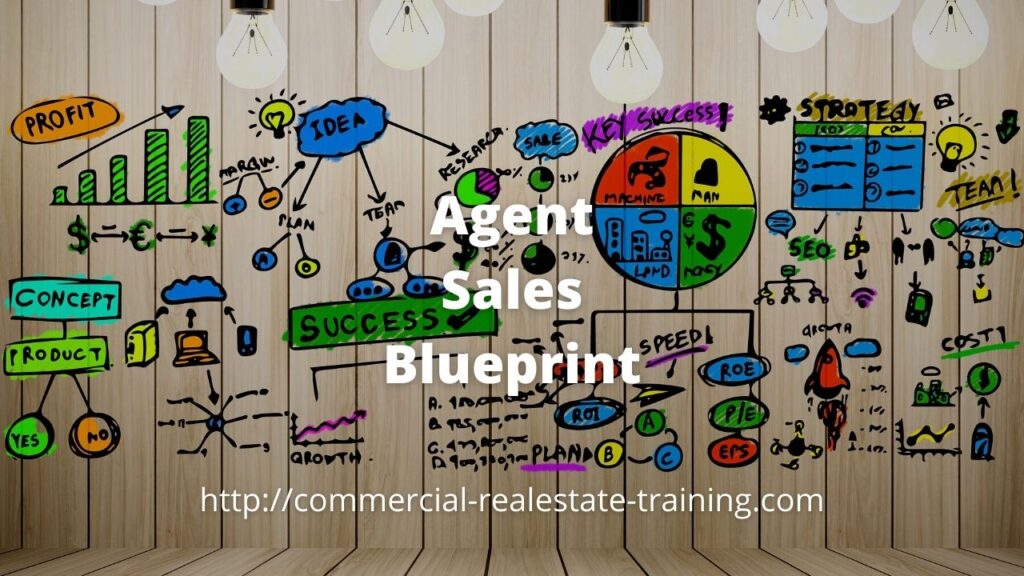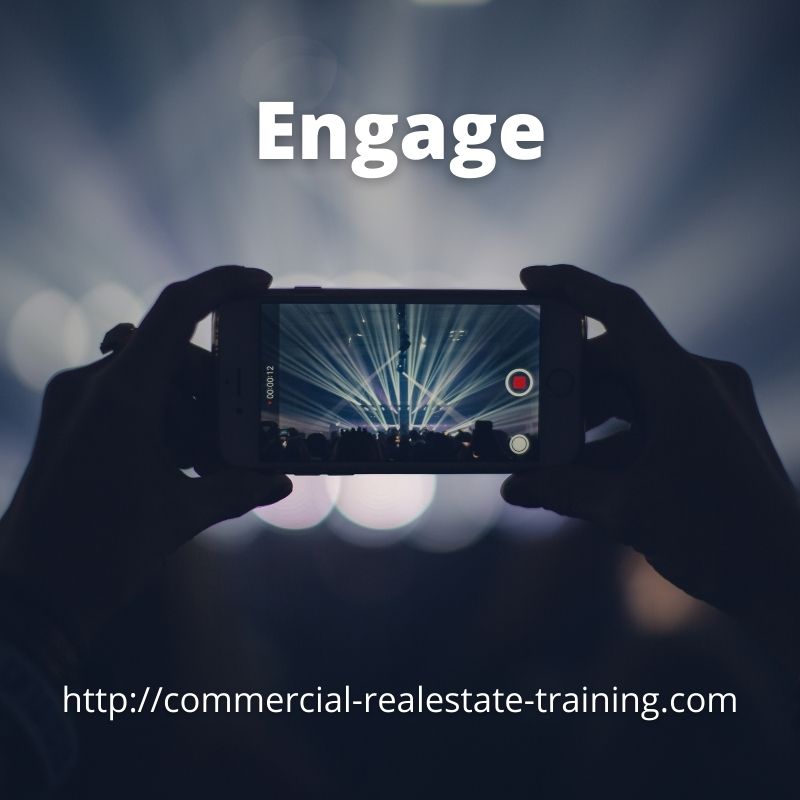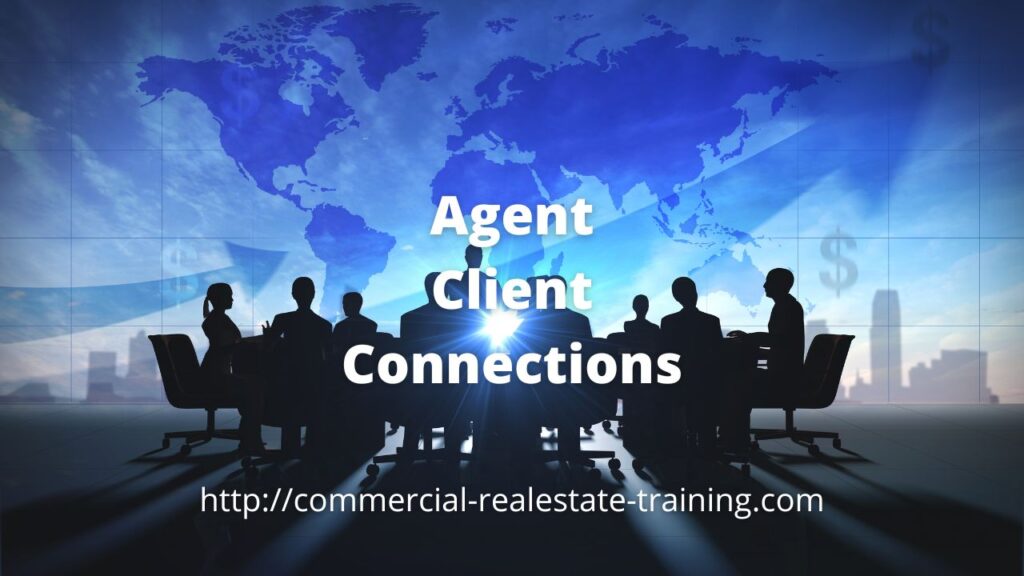How to Be a Professional Agent Today
Sales and leasing activities in commercial real estate are competitive in many ways. That is part of being in the real estate business. Being the ‘best’ local and professional agent is a deliberate strategy that works. It helps you ‘stand out’ in the crowd.
Some agent “players” in the sector can also compete in ways that can come across as “aggressive” and/or “pushy” due to the substantial sums of commissions available.
Through all of that, the best business approach for agents today is to demonstrate experience and provide strategies; that is the ‘professional’ way to win business. ‘Pushy’ agents don’t last long.
The Accomplished Professional
Why does this matter to you? What is your reaction? How can you compete in an aggressive or competitive market? The ‘top agents’ are not ‘pushy’ but always professional. There is a big difference there. They provide solutions and recommendations.
Be prepared for various types of people in the real estate industry to put pressure on you regarding how much you believe their property is worth or when negotiating a sale or lease agreement.
Be the client’s top pick for an agent and do things that encourage them to know, trust, and remember you. Real estate buying, seling, and leasing is not an experiment. It is a distinct quality service that necessitates the best people.

Skilled and Educated
When faced with a real estate problem or demand, you want your clients and prospects to turn to you for a solution. You can’t predict when that requirement will happen, but you want them to remember you.
Your utmost professionalism should be the main point of real estate service focus. It would be beneficial if you were the top agent in your location, for the property type, and in your industry. You want others to know it. So, that is a deliberate positioning and personal marketing process.
Specialist Agent
Being the “best” means serving others and being relevant rather than aggressive. You will draw in more business if you are more “relevant.”
Achieving agent relevance requires striking a balance between offering exceptional services and finding solutions in a timely way. It is also about knowing your clients’ and prospects’ requirements.
It would be wise to review things at this time for yourself.

Reviewing Process
How competent do you believe you are now or can be in the commercial real estate industry this year? Consider real estate marketing and media coverage for sellers, buyers, tenants, investors, and developers. Refine your lists to ensure that you are communicating with these folks frequently.
What does “professional” mean to you and your area’s commercial real estate market? Can you market and sell real estate locally based on your clientele, abilities, and expertise? If you cannot, then “Houston, we have a problem.”
It takes a reasonable amount of personal development to be a top agent in your area and the best choice of agent. To market yourself to people over time, you have to be methodical, consistent, and deliberate. Consistency and effort will help get you there.
Are You Professional and Competent?
On this, let’s establish some guidelines for you. Commercial properties’ prospecting, listing, and closing processes depend heavily on getting “up close and professional” with the sellers and real estate investors and learning about their property investment plans and motivations.
What is your client base, and who are the ‘right people’ for you to assist? Clarity is needed there.
Start with and use the information and transaction history in your commercial real estate firm. Then you ‘break down’ the data.
An appropriate series of detailed forms pertinent to the property categories and your market should be created to capture and contain all the knowledge received daily about and in the market.

Real Estate Show and Tell
Make sure the client can see your diligence in real estate data collection and analysis when you capture property data. Be in “plain sight” of the essential individuals you would classify as “clients” and use your professional judgement.
- Make physical copies of your market research and property information, and then enter it into a computerised listing data bank.
- Use the research to your advantage in conversations and meetings. The research would be photos, newsclippings, internet shapshots, listings, sales and leasing results plus a time on market assessment.
- The more you are familiar with your market and have access to current information, the more long-term business you will locate and lure in.
Use a straightforward spreadsheet if you don’t have access to specialised commercial property tools to compile your data. You can use the procedure anywhere, at any time, because it is simple and efficient.

Capturing and Managing Data
What format do you capture data in? Note taking apps are good, and spreadsheets work as well. It just depends on what you find more convenient.
Note-taking apps can be tagged for recalling transactions and property details. There are a couple of good apps, Google Keep and Evernote; there are also others to consider.
Spreadsheets can be sorted and changed so that you can quickly and easily get the information you need about sales and leasing.
As a point of distinction in your conversations, you can even do this research commentary in front of the client. Stand out as the agent with ‘data’ at their fingertips.
Mastering Software
What software do you use? In the industry, computer and software literacy is now the “usual” rather than the “exception”.
Today, you should, at the very least, be reasonably proficient in using widely accessible applications like “MS Word, Excel, Publisher, Outlook, Adobe Acrobat PDF, and Access.”
We included “Access” on this list since it is a solid and adaptable database tool that works with all other significant Microsoft tools.

Productive Databases
If you have extra cash to invest in a database software application to track and manage your client interactions, compare how they all work and compare prices before you make a purchase.
There are many excellent programmes available. They are all unique, and some may not suit you.
An effective database software package must be simple and functional. I prefer to enter data quickly and effectively during or straight after a conversation before continuing.
A software program is only ideal if it takes less time to enter real estate data. Data entry is the foundation for your real estate career.
So, let’s now move on to the keys to effective relationships in commercial real estate.

Successful Relationship Building
Here are six easy methods you may begin to use to develop your relationships in commercial real estate sales and leasing. Use these ideas consistently and effectively.
- Property is very much a person-to-person business. Your business’s name, advertising, etc., may initially draw in your clients or potential customers. In time, people trust and work with one another (not firms or organisations). Consequently, your success as an agent depends on your personality, knowledge, strategy, confidence, and attitude. These variables are under your control, and only you have the power to take that action. You can create trusting relationships with prospects and clients.
- You should not adopt artificial characteristics or mannerisms that do not come to you naturally. The client will quickly see if you are not your “natural” person; they will know if you are being “artificial”. They will then find flaws in your procedures. Given all of this, you must be able to give your client the QUALITY SERVICE they want; as a result, altering your abilities and behaviours may be required, which then takes practice to support confidence.
- Knowing and relating to your client base is essential. The typical clientele in commercial real estate are intelligent businesspeople who are accustomed to working with “real estate experts”. They won’t settle for anything less. You can and should adopt a daily practice procedure across the crucial communication and negotiation skills of real estate in your location. Merge your market knowledge into that. Your success with listings and deal conversions will increase quickly as a result.
- What makes your commercial, retail, and industrial clients happy? They want a good result in a timely way. They seek an expert. First, the client choosing to work with you is entirely predicated on the fact that you have the results, skills, and abilities they desire, and they will rank you far ahead of your rivals in these areas. Second, the customer will look for an agent who comes across as organised, successful, and well-presented and adopts a courteous, confident, businesslike demeanour.
- Connect with and listen to the Client. They are looking for an imaginative, energetic agent, ready to LISTEN to the client’s needs; and, most importantly, able to prompt action to meet those needs. When going through this process, it can be helpful to consider what you would want from an agent if you were a customer.
- Create levels of trust through deeper communication. The client should trust and know that you can assist them. What can you do to achieve that with a listing proposal? It is not about the marketing costs or the commissions but your suitability and skill to help the client get the desired outcome. If you need more expertise and relevance in your market niche, work on your weakest skills as a priority; because they will hold you back and reduce your conversion rates.
- In listing and marketing, never be pressured into making rash statements or giving opinions without all the facts. Given the property market’s complexity, the vendor will respect you for spending a little extra time investigating the specific property and creating a complete marketing submission before accepting a listing. Delay your response if you need more specifics on any property proposition or related question; instead, ask for additional time to gather the necessary information.
- Proposals and submissions should include fully detailed relevant real estate matters and recommendations. This involves timing, market circumstances and opportunities, advertising budget, commission, expected market value, and target market. It also provides marketing suggestions and methods. Without any padding, the submission should support your capacity to complete the task and encourage action that will help you get listed. Creating a proposal includes determining the client’s anxieties and concerns and then handling them. You will be closer to closing the listing if you have this in the proposal or submission to the customer.
- Submissions and proposals to the client must be completed promptly and followed up regularly and professionally until a decision is made. You will not win every listing that you “chase”. A top agent, however, will usually convert listings at over 75%. After the listing has been acquired, all subsequent communications, negotiations, and final agreements must be supported by accurate documentation. The marketing phase, the inspection procedure, the negotiation, and the contract or lease are all included in this documentation requirement. Doing it well establishes a strong level of confidence with the client, which is crucial for the actual transaction, the future, and further business dealings with the same people.
Although not complex, the issues above require focus and care at the agent level. Everything else is up to you.








